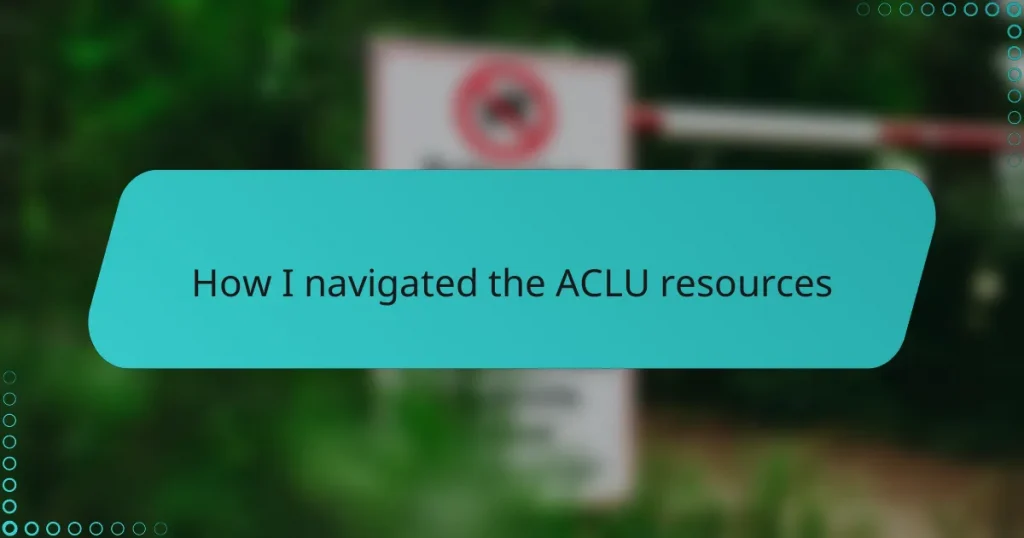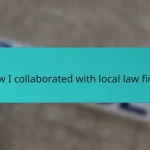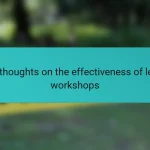Key takeaways
- Legal advocacy involves clear communication, informed action, and understanding one’s power within the legal system.
- The ACLU provides accessible resources, including guides and case studies, which empower individuals to effectively engage in advocacy.
- Utilizing ACLU support is straightforward, with responsive guidance tailored to specific legal concerns, fostering a sense of real connection.
- Success in advocacy comes from setting clear goals, collaborating with others, and maintaining patience and persistence in the face of challenges.
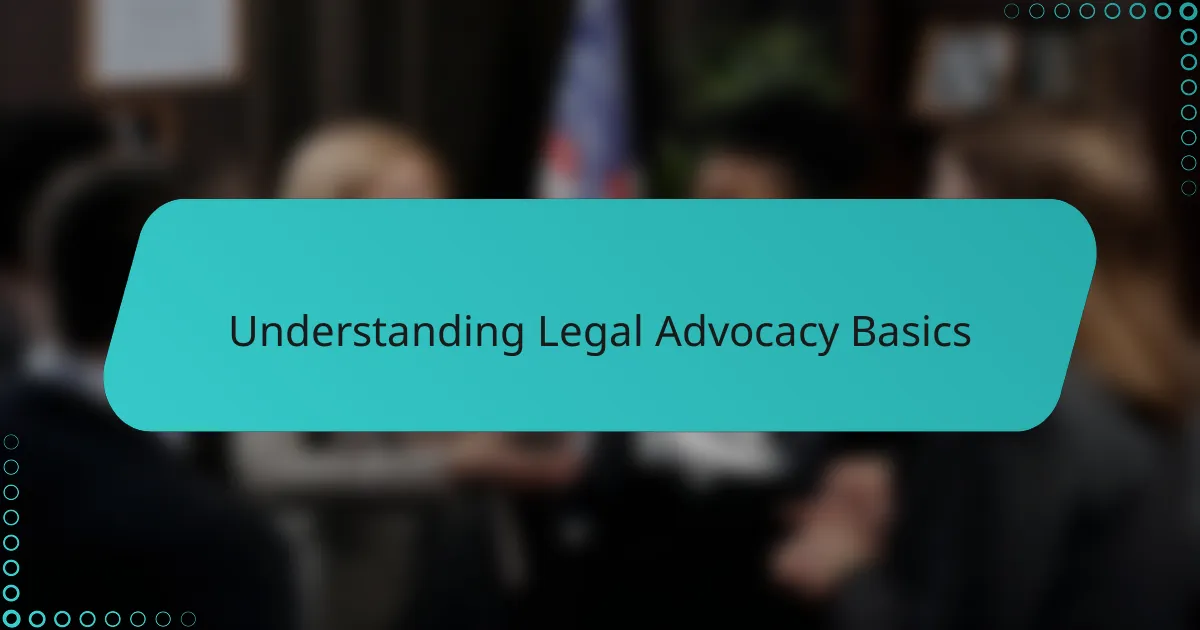
Understanding legal advocacy basics
Legal advocacy, at its core, is about standing up for rights and justice through informed action. When I first explored the concept, I realized it’s not just about knowing the law but understanding how to use that knowledge effectively to influence change. Have you ever felt overwhelmed by legal jargon? I certainly did, until I learned that advocacy is really about clear communication and purposeful strategy.
One thing that struck me early on is that legal advocacy requires patience and persistence. It’s a process, not a quick fix. Through the ACLU resources, I began to see how advocates work tirelessly behind the scenes—researching, educating, and mobilizing communities. This made me appreciate the quiet strength it takes to keep pushing for justice even when immediate results aren’t visible.
Understanding the basics also means recognizing your own power in the legal system. How can you leverage your unique voice and experience to make a difference? For me, this realization was empowering; it transformed my role from a passive observer to an active participant in legal advocacy.
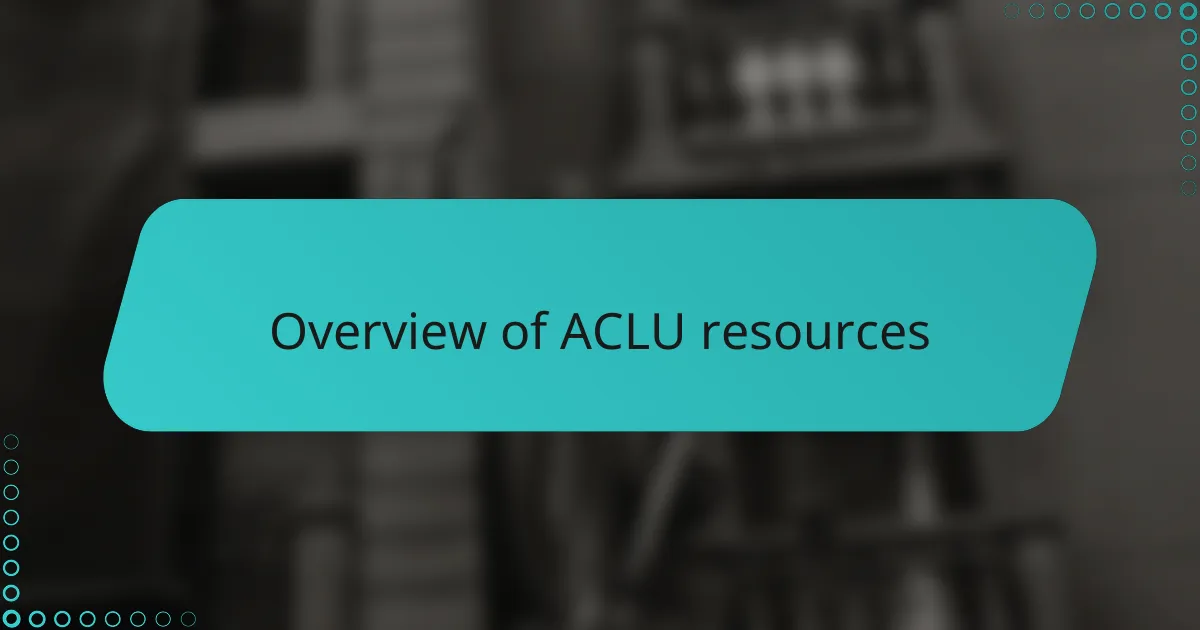
Overview of ACLU resources
Diving into the ACLU’s resources felt like opening a door to a vast library of legal tools and guides tailored for everyday advocates like me. What stood out was the variety—from detailed reports and fact sheets to step-by-step guides on how to challenge injustices. I remember feeling a sense of relief knowing I wasn’t navigating this complex field alone.
Their resources didn’t just provide information; they offered practical strategies and real-life examples that made the issues more relatable. For instance, when I came across case studies highlighting successful advocacy efforts, it sparked hope and showed me that persistent effort truly pays off. Have you ever found yourself inspired by stories of change? That’s exactly what these materials did for me.
One aspect I appreciated deeply was the way the ACLU’s resources emphasized both grassroots organizing and individual action. It made me realize that no matter your background or expertise, there’s a place for you in this movement. Accessing these resources transformed my initial confusion into clear, actionable steps—giving me the confidence to move forward.
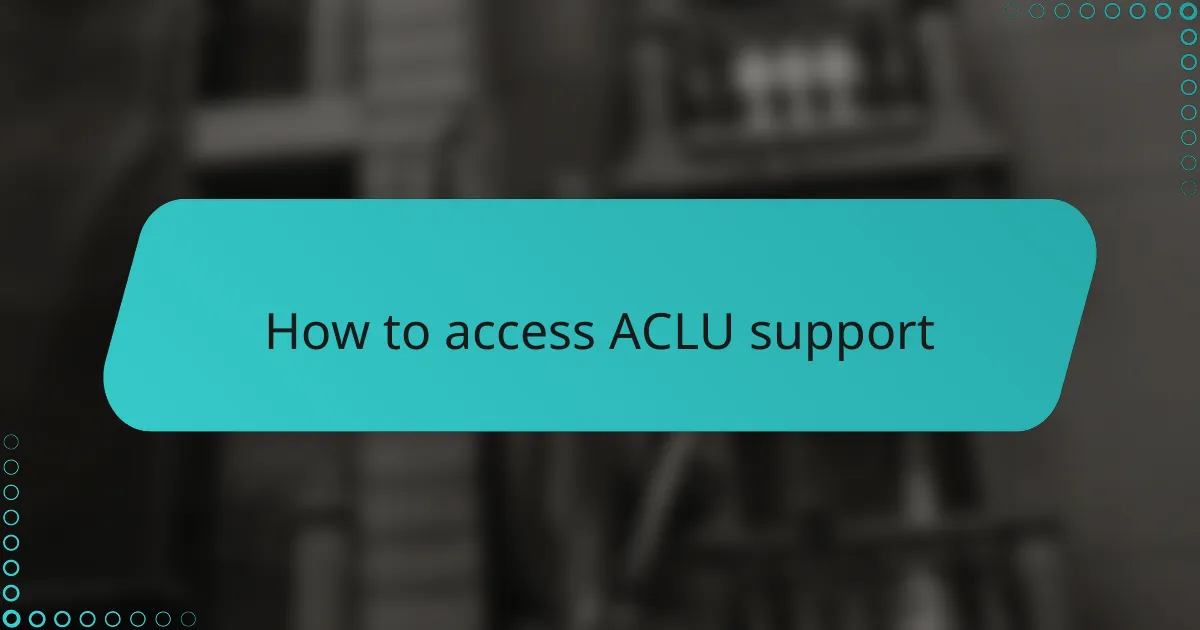
How to access ACLU support
Accessing ACLU support was simpler than I initially expected. I started by visiting their website, where they have a dedicated “Get Help” section that immediately pointed me to the right resources based on my issue. Have you ever felt stuck wondering where to begin? That section helped me cut through the noise.
Once I identified my concern, I reached out through their online intake form, which was straightforward and less intimidating than I’d feared. I remember feeling a mix of hesitation and relief—it was empowering to know that my voice could be heard even before speaking directly to someone.
What really stood out was their responsiveness; within days, I received clear guidance tailored to my situation. This personal touch made me realize that ACLU support isn’t just about information—it’s about real connection and practical help when you need it most.
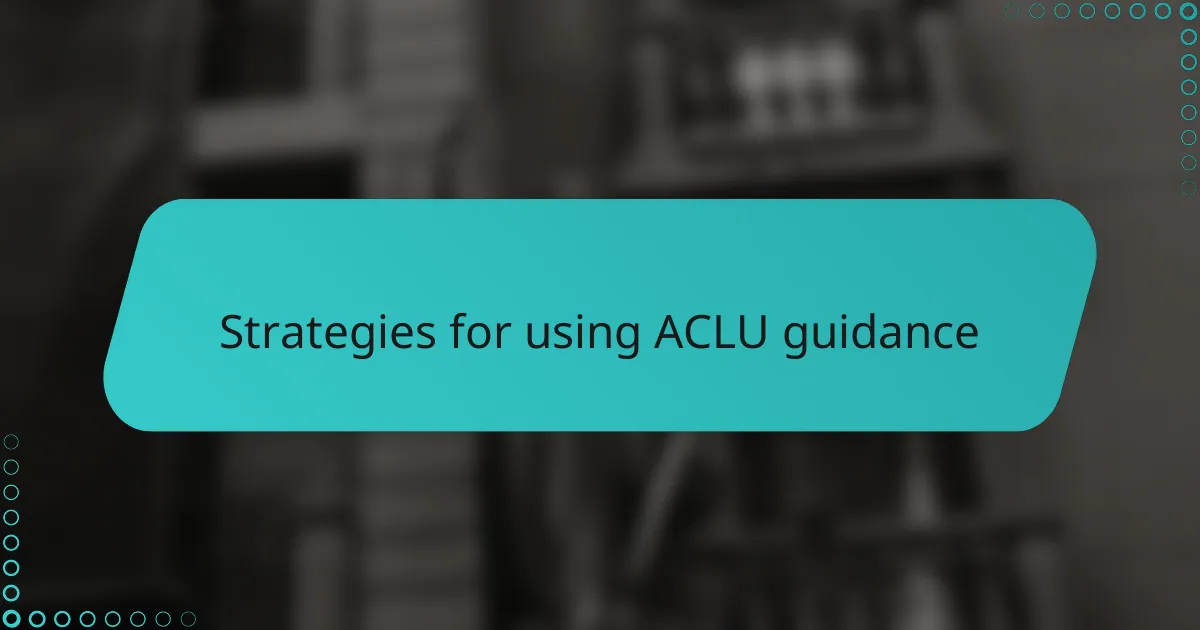
Strategies for using ACLU guidance
One strategy I found invaluable was using the ACLU’s step-by-step guides as a roadmap. When I faced a complex issue, breaking it down into manageable actions made the process less daunting. Have you ever felt paralyzed by where to start? Following their structured advice helped me move forward with confidence.
I also learned to cross-reference their fact sheets with real-life case studies, which brought clarity to abstract legal concepts. It was like seeing theory in action, reinforcing that the strategies recommended were proven and practical. This approach turned my initial confusion into actionable knowledge.
Finally, I made it a point to engage with the ACLU’s updates and alerts regularly. Staying informed about ongoing campaigns and legal changes helped me adjust my tactics on the fly. Don’t you think staying current is crucial in advocacy? For me, this continuous learning kept my efforts relevant and effective.
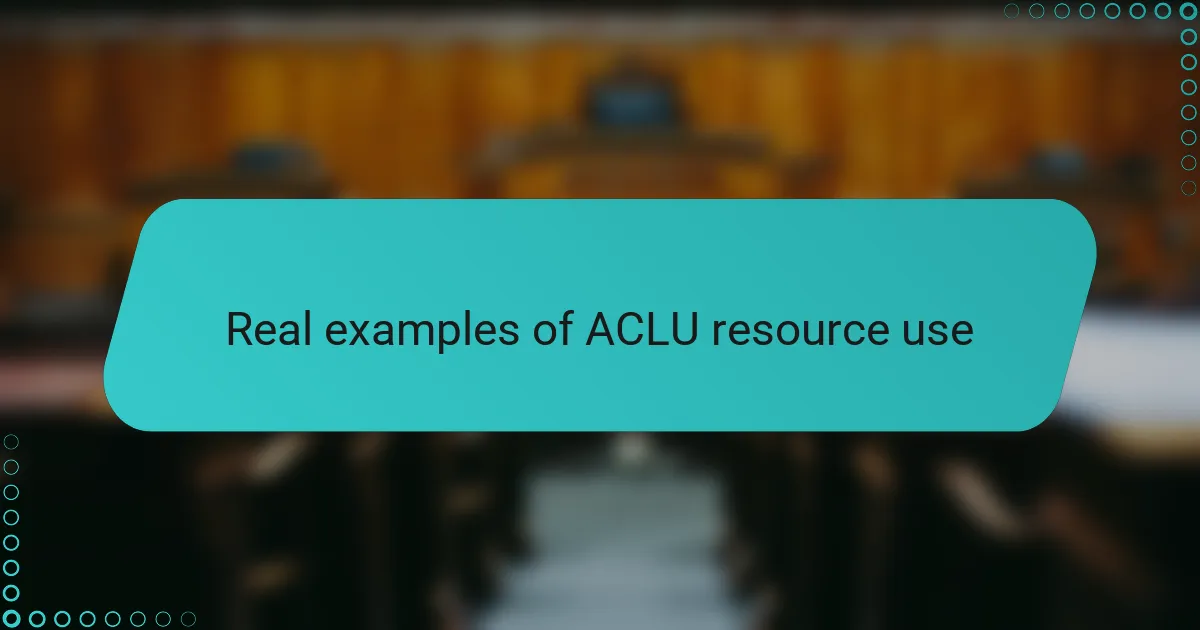
Real examples of ACLU resource use
One memorable example of using ACLU resources was when I helped a community group challenge a local ordinance that threatened to limit peaceful protests. The clear templates and legal tips they provided made drafting a compelling argument feel surprisingly doable. Have you ever faced a situation where knowing exactly what to say changed the whole outcome? That’s what happened here.
Another time, I relied on their guides during a school disciplinary case affecting a friend’s child. The step-by-step instructions broke down intimidating legal procedures into small, manageable steps. I remember feeling overwhelmed at first, but those resources turned my anxiety into action. It showed me how real and accessible legal advocacy can be when you have the right tools at hand.
I also recall reaching out through the ACLU’s support system after witnessing a rights violation at a local public event. Their prompt and thoughtful response didn’t just provide legal advice—it offered reassurance that someone was truly listening. Isn’t it powerful how knowing you’re not alone can fuel your courage to push back? That experience reinforced for me how vital these resources are in navigating complex legal challenges.
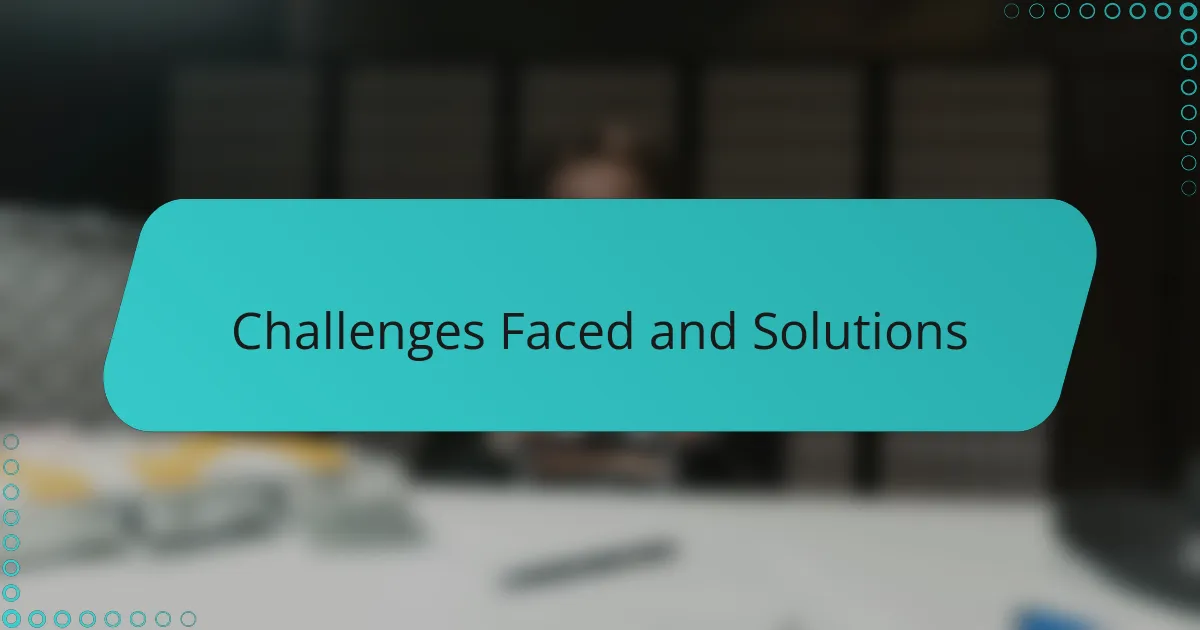
Challenges faced and solutions
Navigating the ACLU resources wasn’t without its hurdles. At first, I struggled to identify which materials were most relevant to my specific situation—there’s so much information that it felt like searching for a needle in a haystack. But I quickly realized that taking a moment to clarify my exact needs before diving in made all the difference, turning overwhelm into focused action.
Another challenge was grappling with some of the legal language and concepts that, despite the ACLU’s clear explanations, still felt dense. It reminded me how important it is to be patient with yourself and not shy away from revisiting sections or seeking additional clarifications. Have you ever found yourself rereading a paragraph multiple times before it clicks? That persistence, I found, is part of effective advocacy.
Sometimes, the biggest obstacle was dealing with moments of self-doubt—wondering if my efforts could truly make an impact. The solution came through the inspiring examples and success stories embedded in the resources; they reminded me that even small steps matter and that collective persistence drives change. Isn’t that the heart of advocacy—that our voices, no matter how small, contribute to a larger movement?
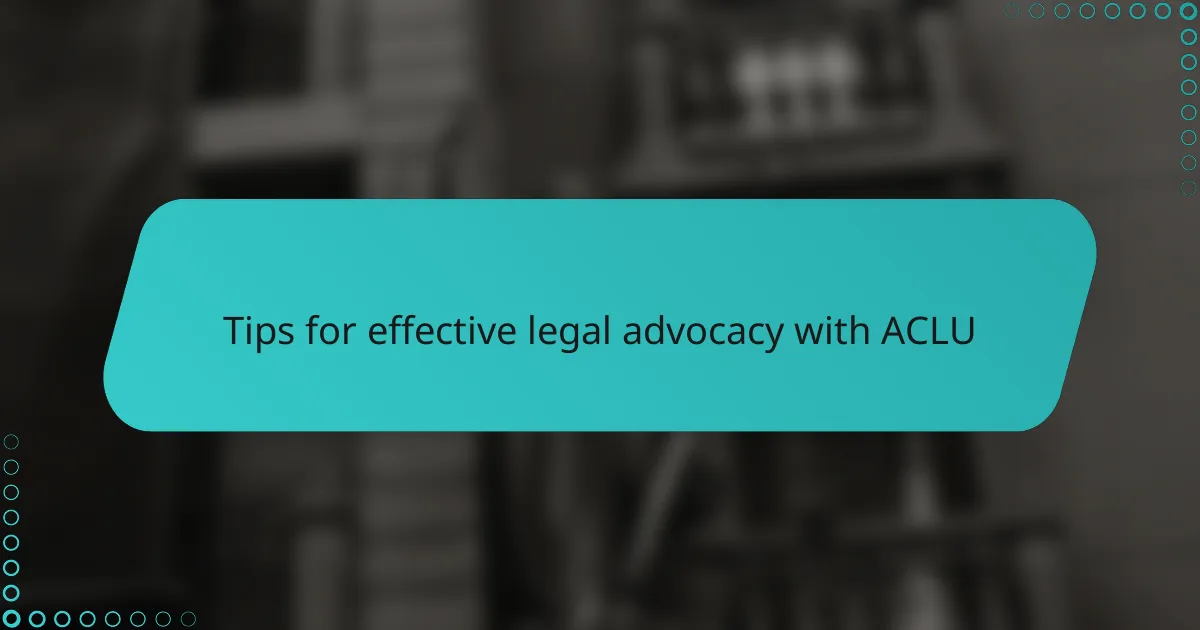
Tips for effective legal advocacy with ACLU
What worked best for me was setting clear goals before diving into ACLU resources. I asked myself, “What outcome am I aiming for?” Having this focus helped me choose the right guides and tools without getting lost in the wealth of information. Have you noticed how having a roadmap transforms overwhelming tasks into manageable steps? That clarity made all the difference.
I also made sure to leverage the ACLU’s community forums and networks. Connecting with others who shared similar challenges provided not only practical advice but also emotional support. It reminded me that advocacy isn’t a solo journey; it thrives on solidarity and shared experiences. When was the last time you learned something valuable just by listening to someone else’s story?
Lastly, patience was key. There were moments when progress felt slow or setbacks discouraged me, but the ACLU’s resources constantly emphasized persistence. I realized effective advocacy is less about immediate wins and more about staying committed over time. Isn’t that what real change requires—a steady, unwavering effort? Keeping this mindset helped me stay engaged even when the path wasn’t easy.
